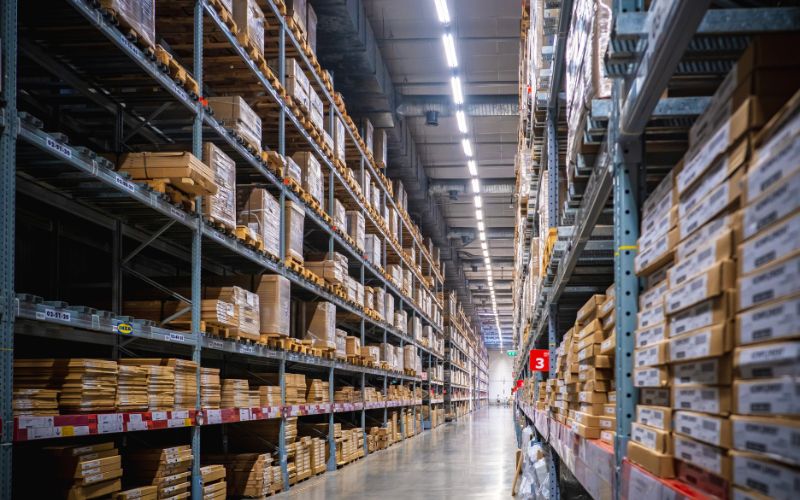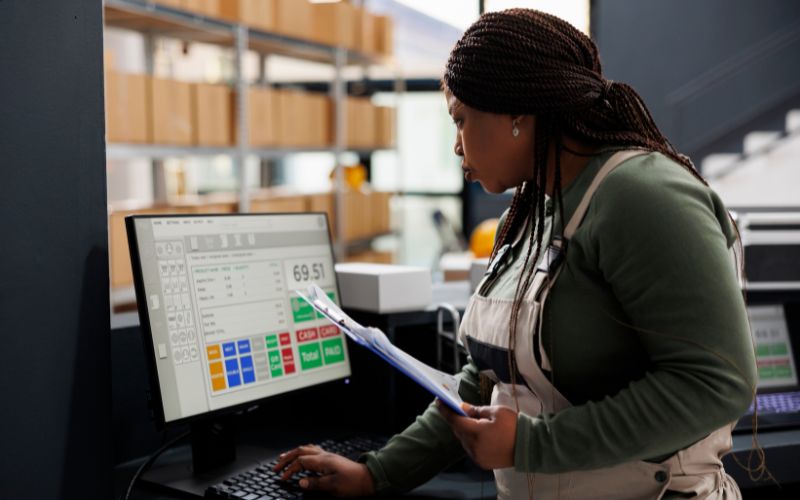Euroroute Logistics
The Hidden Costs of In-House Logistics: Why Outsourcing Could Save You More in 2025
Managing logistics in-house may seem like a cost-effective option at first glance as internal control of operations and avoiding outsourcing fees feels like a logical move. However, many businesses underestimate the hidden costs that come with running logistics internally. These costs can drain resources, hinder efficiency, and limit growth potential. In this blog, we’ll uncover these often-overlooked expenses and explain why outsourcing logistics to a trusted partner like Euroroute Logistics can be a smarter, more profitable choice in 2025.

Infrastructure and Technology Investments
One of the most significant expenses of in-house logistics is the infrastructure required to support operations. Building or leasing warehouses, maintaining fleets, and acquiring specialised equipment involve substantial capital investments. In addition, businesses must continually invest in logistics technology, such as warehouse management systems (WMS), inventory tracking tools, and automation solutions, to remain competitive. These expenses are not one-time costs and require ongoing upgrades and maintenance, especially as businesses grow or adapt to market demands. For many companies, the upfront and recurring costs of infrastructure and technology can quickly outweigh the perceived savings of managing logistics internally.
Euroroute’s Advantage
Euroroute Logistics offers access to state-of-the-art facilities and advanced logistics technologies without the need for your business to make significant capital investments. Our scalable solutions ensure you benefit from cutting-edge systems, like real-time tracking and advanced WMS technology, without bearing the burden of ownership or maintenance costs. Euroroute Logistics’ API integration seamlessly connects with client systems, enabling rapid synchronisation, enhanced transparency, and real-time visibility across all logistics operations.
Operational Inefficiencies
In-house logistics requires hiring, training, and retaining skilled employees, a challenging and expensive process, especially in a competitive labour market. Managing warehouse staff, drivers, and logistics coordinators demands time, resources, and expertise. Additionally, operational inefficiencies, such as outdated processes or a lack of specialised knowledge, can lead to errors, delays, and dissatisfied customers. Running logistics internally also means absorbing the cost of employee turnover, absenteeism, and training programs. These factors add up over time, reducing profitability and increasing the complexity of operations.
Euroroute’s Logistics Expertise
At Euroroute Logistics, we employ a team of experienced logistics professionals who specialise in efficient, accurate order fulfilment, inventory management, and transportation. Our streamlined processes and over 20 years of industry expertise allow us to handle operations with greater precision and speed, reducing errors and maximizing productivity.
Risk Mitigation and Scalability Challenges
Logistics is inherently risky. Supply chain disruptions, inventory mismanagement, and fluctuating demand can create unexpected financial burdens. In-house logistics operations often lack the flexibility and resources to adapt to sudden changes or scale efficiently in response to growth. When demand spikes, businesses with in-house logistics may struggle to quickly increase capacity, resulting in delays or missed opportunities. Conversely, during slower periods, the cost of maintaining underutilised infrastructure and staff can weigh heavily on budgets.
Euroroute’s Tailored Solutions
Euroroute offers robust risk management processes to minimize disruptions and ensure business continuity. Our scalable logistics solutions adapt to your needs, whether you’re scaling up for a seasonal surge or streamlining during quieter periods. By partnering with Euroroute, you gain the flexibility to respond to market demands without overcommitting resources.
Opportunity Cost of Diverted Focus
Managing logistics in-house diverts attention and resources away from your core business activities, such as product development, marketing, and customer engagement. The time and effort spent managing supply chains could be better used driving innovation, expanding market reach, or improving customer experiences. Businesses that attempt to juggle both core activities and logistics often find themselves stretched thin, leading to missed opportunities for growth and reduced competitiveness.
Total Cost Comparison
The total cost of in-house logistics extends beyond the visible expenses of infrastructure and staff. Hidden costs like maintenance, insurance, compliance, and risk management add significant financial pressure. When compared to the variable and scalable costs of outsourcing, managing logistics internally often proves more expensive over time. Euroroute’s outsourced logistics solutions provide a cost-effective alternative to in-house operations. By offering flexible pricing models and tailored services, we help businesses reduce operational costs while maintaining high standards of efficiency and reliability.
Why Outsourcing Is the Smarter Choice in 2025
The hidden costs of in-house logistics can strain resources, limit scalability, and detract from your core business goals. By outsourcing logistics to Euroroute, you gain access to advanced infrastructure, skilled professionals, and scalable solutions that drive efficiency and profitability. In 2025, businesses looking to optimize their supply chains and reduce costs should consider outsourcing as a strategic advantage. Euroroute Logistics is here to help you streamline operations, mitigate risks, and focus on growth. Contact us today to learn how our tailored logistics solutions can transform your operations and save you more.
Managing logistics in-house diverts attention and resources away from your core business activities.
In 2025, businesses looking to optimize their supply chains and reduce costs should consider outsourcing as a strategic advantage.

